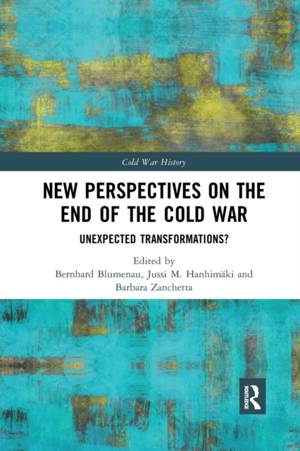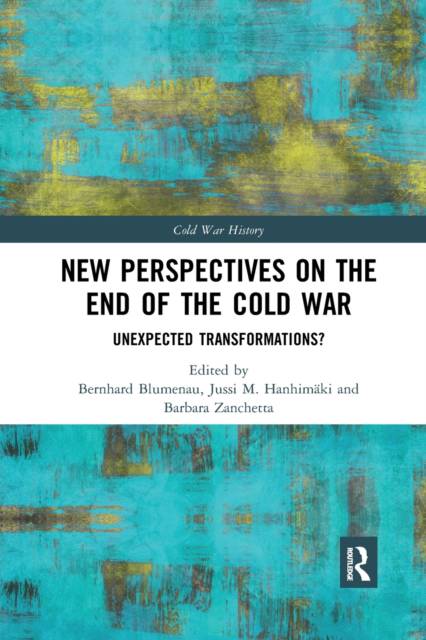
- Afhalen na 1 uur in een winkel met voorraad
- Gratis thuislevering in België vanaf € 30
- Ruim aanbod met 7 miljoen producten
- Afhalen na 1 uur in een winkel met voorraad
- Gratis thuislevering in België vanaf € 30
- Ruim aanbod met 7 miljoen producten
New Perspectives on the End of the Cold War
Unexpected Transformations?
Omschrijving
This collection of essays makes a significant contribution to the historiography of the end of the Cold War.
Research on the causes and consequences of the end of the Cold War is constantly growing. Initially, it was dominated by fairly simplistic, and often politically motivated, debates revolving around the role played by major "winners" and "losers". This volume addresses a number of diverse issues and seeks to challenge several "common wisdoms" about the end of the Cold War. Together, the contributions provide insights on the role of personalities as well as the impact of transnational movements and forces on the unexpected political transformations of the late 1980s and early 1990s. Geographically, the chapters largely focus on the United States, Europe, with special emphasis on Germany, and the Soviet Union. The individual chapters are drawn together by the overarching theme relating to a particular "common wisdom" were the transformations that occurred truly "unexpected"? This collection of essays will make an important contribution to the growing literature on the developments that produced the collapse of the Iron Curtain, the demise of the Soviet Union and the end of the Cold War.
This volume will be of much interest to students of Cold War Studies, International History, European Politics and International Relations in general.
Specificaties
Betrokkenen
- Uitgeverij:
Inhoud
- Aantal bladzijden:
- 230
- Taal:
- Engels
- Reeks:
Eigenschappen
- Productcode (EAN):
- 9780367592943
- Verschijningsdatum:
- 14/08/2020
- Uitvoering:
- Paperback
- Formaat:
- Trade paperback (VS)
- Afmetingen:
- 155 mm x 231 mm
- Gewicht:
- 317 g

Alleen bij Standaard Boekhandel
Beoordelingen
We publiceren alleen reviews die voldoen aan de voorwaarden voor reviews. Bekijk onze voorwaarden voor reviews.










